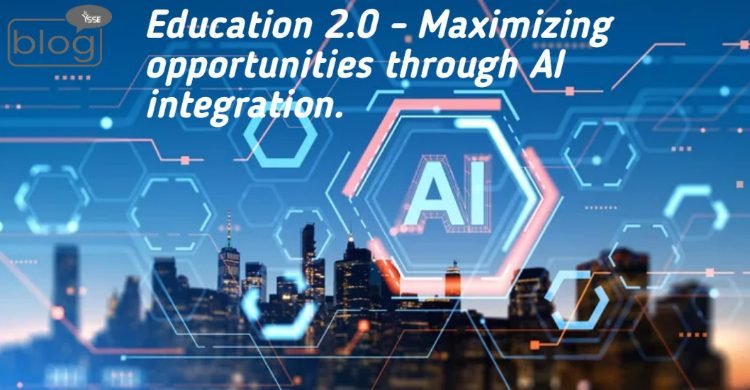In today’s world, the use of technology in education has changed traditional teaching methods into interactive experiences.
The rise of artificial intelligence (AI) is among the most exciting technological developments in this field.
Ai has the potential to completely transform education as we know it and maximize chances for students all around the world. It is defined by the smooth integration of AI into learning settings.
By providing individualized learning experiences, simplifying administrative processes, generating insights from data analytics, and improving strategies, artificial intelligence (AI) is continuously altering the educational landscape.
Let’s examine in more detail how artificial intelligence is changing schooling and optimizing learning opportunities:
- Tailored Education Programmes
AI provides individualized learning experiences that are to each student’s unique needs.
AI systems are able to examine enormous volumes of data about student performance, learning preferences.
The data is thereafter employed to build personalized educational directions for every student, guaranteeing that they obtain focused guidance and assistance.
For example, AI-powered adaptive learning systems can dynamically modify the learning materials’ difficulty level according to students’ achievement, giving more challenging material according to their need.
In addition to increasing student engagement, this individualized approach promotes deeper comprehension and concept retention.
- Automating Tasks in Administration
The use of AI in education also help administrative work, giving teachers more time to devote to instructing and mentoring students.
Systems driven by artificial intelligence (AI) can automate tasks like scheduling, maintaining student data, and grading assignments.
This lowers workloads and boosts productivity for teachers, giving them more time interacting with students and creating creative learning opportunities.
- Gaining Knowledge with Data Analytics
In modern day education data analytics is essential because it gives teachers useful information on student learning trends, performance indicators, and areas for development.
Real-time student data analysis by AI algorithms can bridge learning gaps, forecast future performance, and provide solutions for problems.
The utilization of data analytics enables for educators to make informed decisions based on data to improve overall learning outcomes, target approach, and optimize instructional tactics.
Administrators can also be benefited by the data analytics used to evaluate the success of educational initiatives, manage resources, and pinpoint areas in the curriculum that need to be improved.
- Improved Instructional Strategies
AI-enabled tools and technology are transforming education by increasing the engagement, soak up, and availability of learning.
AI-powered virtual reality (VR) and augmented reality (AR) apps provide students with a lot of learning opportunities by letting them investigate difficult ideas in a simulated setting.
Additionally, students can benefit greatly from the help of AI and virtual assistants, which offer feedback, respond to inquiries, and mentor students through the learning process.
These AI-powered assistants can respond and reply to students’ questions in real-time thanks to Natural Language Processing (NLP) algorithms, creating a helpful learning environment outside of the traditional classroom.
So overall, AI use for education has huge potential to transform education and optimize opportunities for students globally.
It is drastically changing the educational sector through the help of personalized learning experiences, the automation of administrative works and the improvement of teaching approaches.
Even though there is no denying the advantages of AI in education, at the same time there are many possible drawbacks that must be addressed, including issues with equity, data privacy, and the requirement for continuous professional development for instructors.
Also the dependence of AI is really dangerous. We can open new doors and build a more inclusive and equitable educational system for coming generations by tackling these issues and embracing AI as a potent tool for improving teaching and learning.
To read more blog like this click here
Writer
Sadia haque
Intern, Content writing department
YSSE

